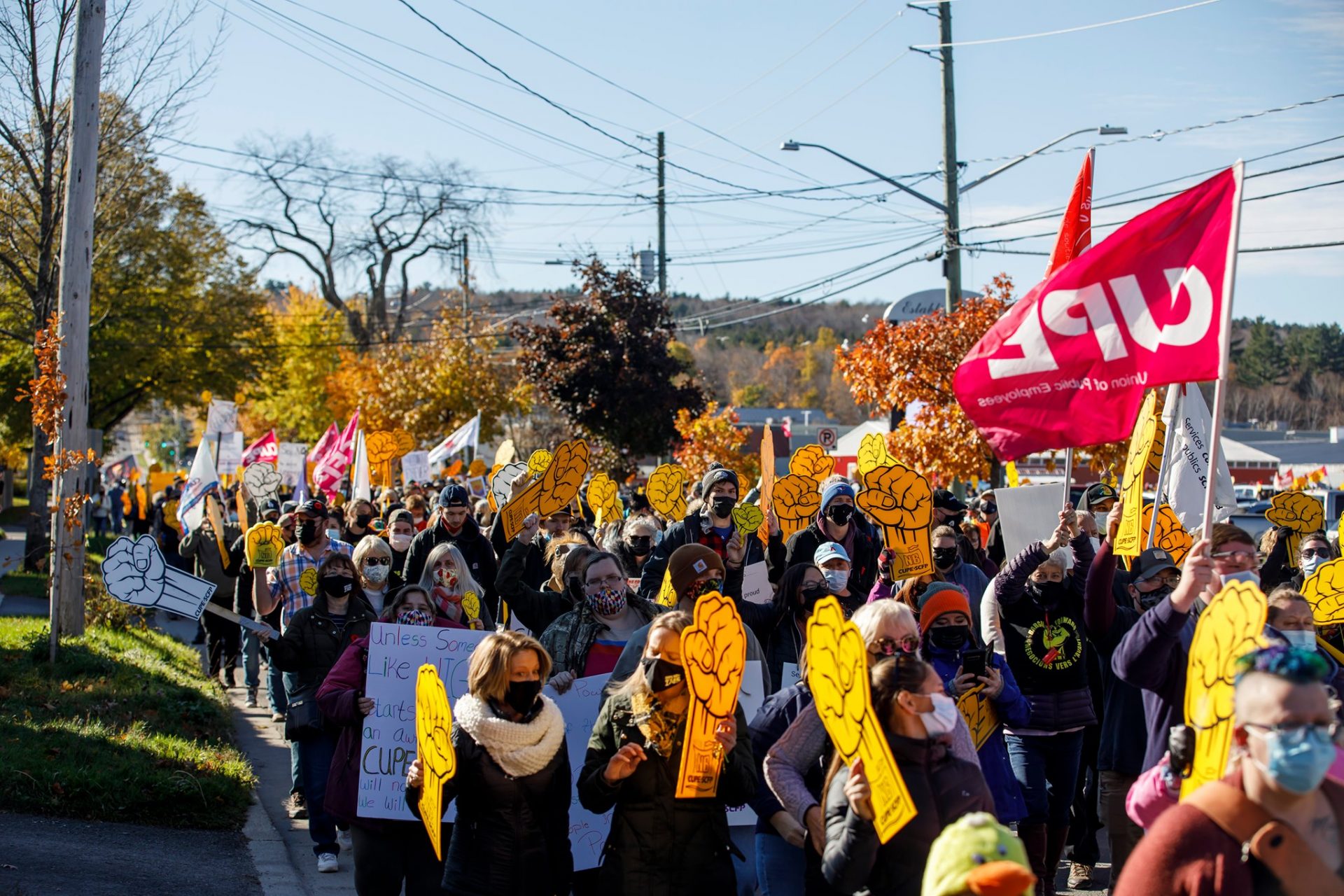
On Saturday, Nov. 13, the Central Bargaining Team of CUPE New Brunswick announced an end to the strike of 22,000 public sector workers. In an announcement on their Facebook page, it was explained that they had reached an agreement that they would put to the members for a vote. However, as there have been no details released, many CUPE-NB members took to social media to voice their concerns.
One member commented on the union’s Facebook page, stating “This doesn’t say much. Higgs said he wasn’t changing his mind about pensions. This letter is confusing.” Another member said, “Let’s see the deal now. Weird to get back to work before we see the deal. It’s a first for me.” Another person said, “I am a member and I hate being left in the dark. I want to read this tentative agreement before rejoicing.”
These concerns are entirely justified. The fact that none of the details of the agreement have been made public is very worrying. The only real reason to keep the details secret would be to prevent backlash over a potential sellout. If the deal is a good one, there would be no reason not to share it far and wide as a big victory for the movement.
More concerning is the fact that the strike has ended before the members have even voted on the proposal. Who decides the fate of the struggle: the Central Bargaining Team or the membership? By ending the strike before the members have even voted on the deal, the ranks are essentially presented with a fait accompli. If the deal is voted down, significant momentum has already been lost and it would be difficult to start the strike up again.
This sort of top-down method in the labour movement—where almost everything is decided by a small group at the top—needs to end. The ranks must decide when they go on strike and when the strike ends. That is the only real way to reinvigorate our unions, strengthen our strikes and defeat attacks from the bosses and their governments. Socialists stand for workers’ democracy at every level of society and this could not be more clear with regards to a strike.
Some may argue that holding a full legal ballot of all 22,000 members is difficult and takes time and therefore ending the strike was the only option. Fair enough. But there are other options. Mass membership meetings can be organized quickly, and at these meetings the contract can be presented for a show-of-hands vote to see if workers want to continue striking or if the tentative deal is good enough to bring down pickets prior to a legal ballot. This would be far more preferable and democratic than a small group of people on the bargaining committee deciding to end the strike.
With voting taking place this week, the results should be announced on Friday. We will see what the deal is, but to be honest, this doesn’t look good. While some on the left have called the deal a victory, they seem to be basing their judgement solely on tiny wage increases and a large dose of wishful thinking. As we have explained previously, the government has managed to force the union to make significant concessions on their initial demand in terms of wages, to the point that faced with rising inflation, this will mean a wage cut in terms of real purchasing power.
And then there is the question of pensions, which was the major sticking-point in the strike. In their first announcement on Nov. 13, the union leadership stated that CUPE 2745 and CUPE 1253 had reached an agreement with the government on the contentious issue of pensions. While Spring Magazine states that “We can expect that pensions will no longer be on the chopping block,” this claim, again, seems to be based on a vain hope. Throughout the strike, the unions had been adamant that pensions were not on the table for negotiations. Therefore, the fact that a “deal” has been reached can only mean that there has been some form of compromise made with the government.
It is therefore likely that we are faced with wage increases that will not keep pace with inflation as well as a compromise on pensions. But this did not have to happen. We will find out the details of the exact deal later in the week, and while the workers appear to have achieved more than if they had never gone on strike, it is far too early to call this a victory. We must fight for genuine democratic traditions of workers control and stop the bad tradition of top-down secrecy that merely demobilizes the workers.
The New Brunswick strike represented a fantastic opportunity to set the tone for the coming trade union struggles in Canada. With rising inflation, it was a great moment to not only fight a defensive battle, but to go on the offensive and demonstrate that the trade union movement can play a central role in winning significant wage increases to guard against wage erosion. With such massive support for the strike, this was entirely possible. The result of the strike serves as a lesson for the entire labour movement.

